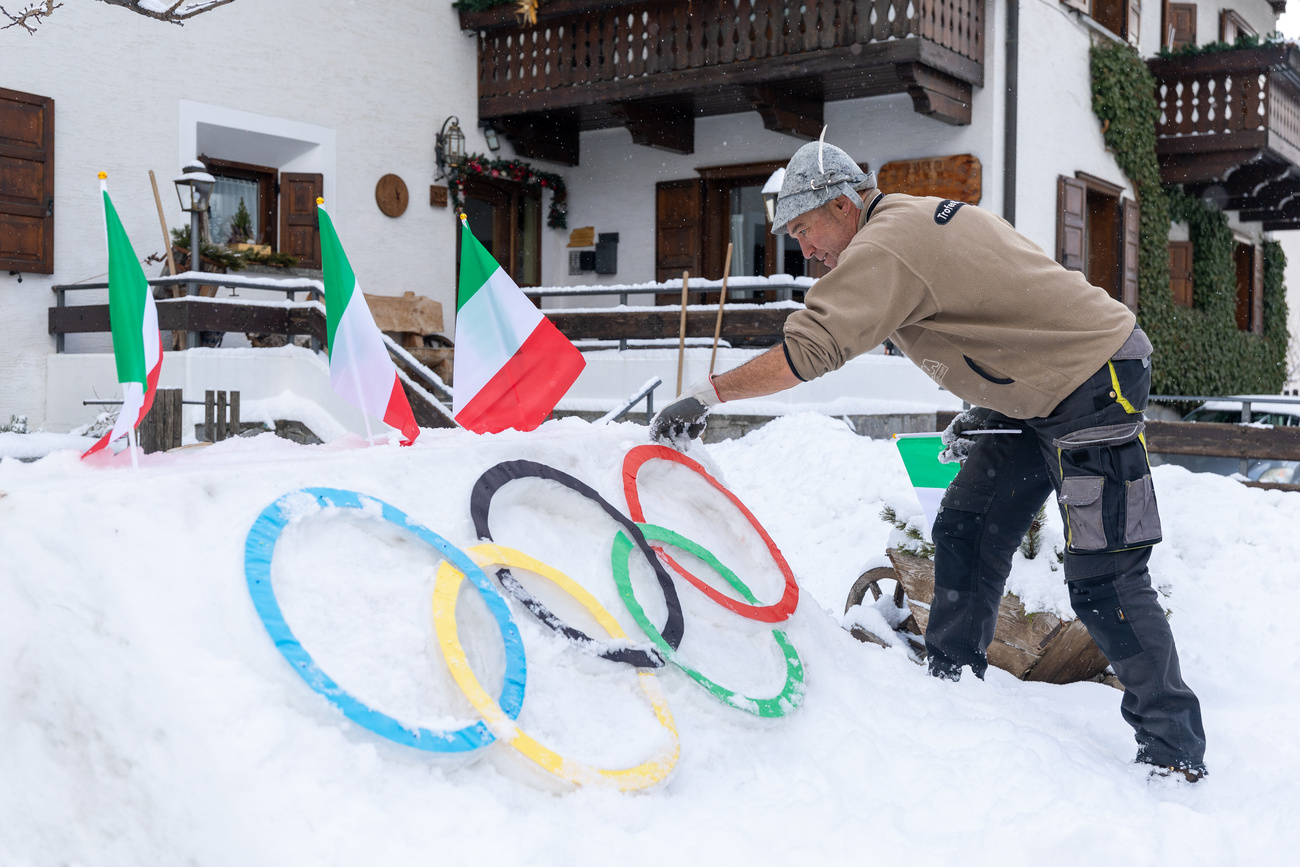
Panama Papers put Putin funds in Zurich

A 2.6 terabyte data leak out of a law office in Panama has revealed a staggering amount of questionable banking activity around the world – including Switzerland.
Of the ten financial institutions requesting the most offshore companies for clients, four are Swiss.
According to the Swiss Bankers Association (SBA)External link, Swiss banks adhere to all international standards, and they accepted the automatic exchange of information (AEI) as the new global standard some time ago.
“Switzerland has a very strict legal basis with regards to money laundering and with regards to the identification of the owner and the beneficial owner of bank accounts,” Daniela Flückiger, SBA’s Latin World spokeswoman told swissinfo.ch.
“Financial institutions must adhere to those regulations and laws both in Switzerland and in other countries where they do business. The financial authorities must investigate whether those regulations and laws have been respected.”
The Swiss Financial Market Supervisory Authority (FINMA) told the Swiss News Agency (SNA) that it’s looking into whether Swiss banks availed of the services offered by the law firm in question. Swiss bank UBS told SNA that it had followed all laws and regulations.
“We are not interested in funds that are untaxed or from dishonest activities,” said UBS.
Mossack Fonseca
The data leak stems from the Panamanian law firm Mossack Fonseca. The 11.5 million files – mainly emails and PDFs of contracts – reveal the offshore holdings of 140 politicians and public officials from around the world, including the prime ministers of Iceland and Pakistan, the president of Ukraine, and the king of Saudi Arabia. Some 215,000 offshore companies are involved.
In a joint year-long effort published on Sunday evening by the International Consortium of Investigative Journalists (ICIJ)External link, hundreds of reporters from nearly 80 countries researched financial transactions through shell companies in Panama and other tax havens. The report points the finger at personalities from politics, business and the world of sport.
According to the ICIJ’s research, Switzerland ranked high in terms of both the number and activity level of intermediaries.
Putin’s friend
One of the people exposed in the fallout is Sergei Roldugin, a close friend of Russian President Vladimir Putin. As reported by the Swiss newspaper Tages-Anzeiger, Roldugin stashed millions at the Zurich branch of Russian financial institution Gazprombank – money that he’s unlikely to have earned as a professional cellist and conductor.
“The records show Roldugin is a behind-the-scenes player in a clandestine network operated by Putin associates that has shuffled at least $2 billion through banks and offshore companies,” according to the ICIJ, German daily Süddeutsche Zeitung and other media partners.
Roldugin is listed as the owner of offshore companies that have obtained payments from other companies worth tens of millions of dollars.
“A company linked to the cellist also grabbed secret influence over Russia’s largest truck maker, another snagged a big slice of Russia’s TV advertising industry. It’s possible Roldugin, who has publicly claimed not to be a businessman, is not the true beneficiary of these riches. Instead, the evidence in the files suggests Roldugin is acting as a front man for a network of Putin loyalists – and perhaps for Putin himself.”
Further FIFA woes
A member of the ethics committee responsible for rooting out corruption in football’s Zurich-based world governing body FIFA has himself been placed under a preliminary investigation, the watchdog said on Sunday.
Juan Pedro Damiani was being investigated over a possible business relationship with fellow Uruguayan Eugenio Figueredo, one of the football officials arrested in Zurich last year, the committee said in a statement.
The statement came after media reports said possible links between the two had been revealed by documents among the so-called Panama Papers.
Damiani told Reuters in Montevideo on Sunday that he broke off relations with Figueredo when the latter was accused of corruption.
FIFA is trying to rebuild itself after an unprecedented crisis which has seen several dozen football officials, many of them former FIFA officials, indicted in the United States.
The ethics committee itself has investigated and banned a number of leading officials for unethical conduct, including former FIFA President Sepp Blatter and European football boss Michel Platini.

In compliance with the JTI standards
More: SWI swissinfo.ch certified by the Journalism Trust Initiative































You can find an overview of ongoing debates with our journalists here . Please join us!
If you want to start a conversation about a topic raised in this article or want to report factual errors, email us at english@swissinfo.ch.